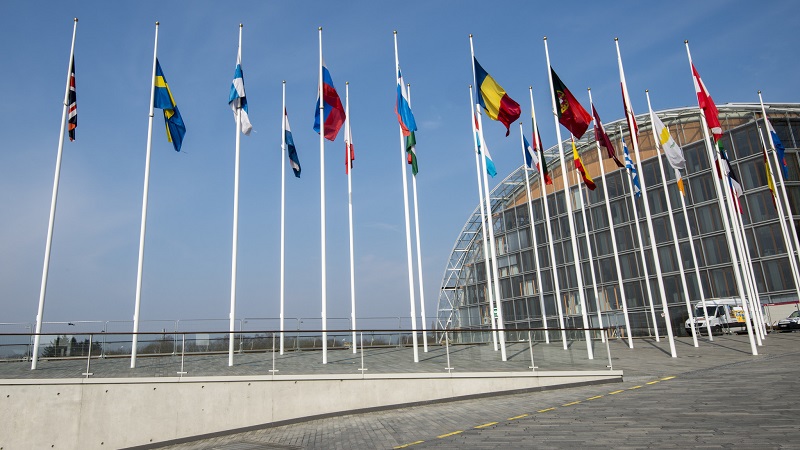The European Investment Bank (EIB) announced its plan to become the “EU Climate Bank” to much fanfare at the end of 2019.
The turning point was the approval of an energy policy phasing out support to fossil fuels and the commitment that all EIB operations would be aligned with the objectives of the Paris Agreement by the end of 2020.
This step was historic. Now it is time for the EIB to deliver.
At the moment, the EIB is still heavily supporting projects at odds with its climate commitments. During the period 2016-2019, the EIB financed high-carbon operations worth €28.7 billion in the energy and transport sectors.
Climate news in your inbox? Sign up here
As revealed in a report published today by Counter Balance, the EIB provided more than €4 billion in loans for the expansion of airports, €10.65 billion to construct or expand roads, highways and motorways, and €2.83 billion in investments for the maritime sector, including for ships fuelled with fossil gas.
In the energy sector, despite the planned ban on fossil fuels, loopholes remain in the EIB policy that allow the bank to continue supporting nuclear energy and fossil fuel infrastructure. For example, in mid-June, the bank approved loans for two new gas projects: a controversial gas terminal in Cyprus and a pipeline between Bulgaria and Serbia.
Over 30 NGOs stood on their hind legs when they discovered that, as part of its climate roadmap, the EIB is still considering major investments in airports and motorways. These are the textbook definition of projects that a climate bank should stop supporting.
What the EIB labels as “climate action” too often includes unsustainable projects. By using terms shaped by industry like “green and low carbon gas” or “green aviation”, the bank is greenwashing business as usual.
“Green and low carbon gas” is a false promise. The potential for truly renewable gas production in the EU is only a fraction of what industry claims is possible and will never be enough to substitute current fossil gas use. Focusing on this niche area for the future of the European energy system is not a credible solution in the long term. It distracts from the urgent needs to finance energy efficiency, the renovation of buildings and the development of renewable energy across Europe and beyond.
“Green aviation” is another myth that risks enabling further public investments to the aviation industry on the vague promise that it might become sustainable in the future. While some improvements might be possible, the options proposed for decarbonising the sector – like offsetting emissions or alternative fuels – have problematic consequences and distract us from addressing the root of the problem, which is the growth of the aviation sector.
It is dishonest and unfair to European citizens to bet our climate’s future on these uncertainties.
G20 countries aid fossil fuels more than clean energies amid pandemic, researchers find
Transparency is another crippling issue for the EIB when it comes to tackling the climate crisis.
Alongside direct financing of projects, the EIB works through financial intermediaries. The use of these intermediaries has skyrocketed in the past 20 years and now represents a third of the banks’ activities. These intermediaries are other public or commercial banks and investment funds that make use of EIB’s support to finance smaller projects and companies.
The result? It is nigh impossible to see where the money goes, which means it could end up as a blank cheque for polluters.
The EIB must introduce clear requirements for these intermediaries to adopt credible decarbonisation plans if they are to access public funds, and to report in a transparent manner on all operations supported by the EIB.
To live up to its aspiration to become the “EU Climate Bank”, the EIB needs to adopt an ambitious climate roadmap by the end of 2020.
This transformation into the “EU Climate Bank” is all the more important considering the flagship role the EIB will play as part of the EU economic recovery package in response to the Covid-19 crisis, and its pivotal role in financing the future European Green Deal.
By taking the right decisions in the coming months, the EIB can set a precedent in the banking industry and demonstrate that a green and just recovery is the way forward for EU public finance.
Xavier Sol is the director of Counter Balance.
